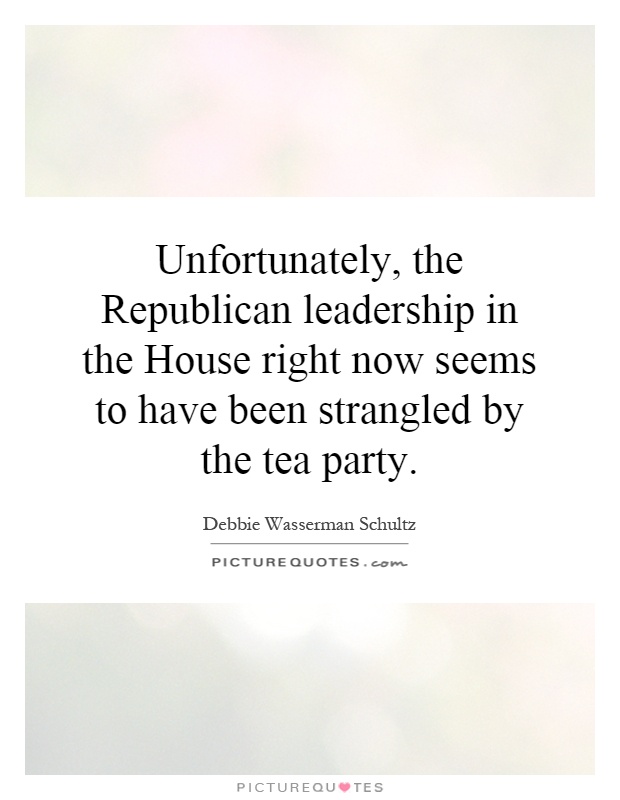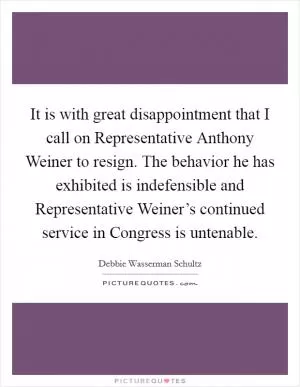Unfortunately, the Republican leadership in the House right now seems to have been strangled by the tea party

Unfortunately, the Republican leadership in the House right now seems to have been strangled by the tea party
Debbie Wasserman Schultz, a prominent Democratic politician and former Chair of the Democratic National Committee, has been a vocal critic of the Republican leadership in the House of Representatives. In a recent interview, she expressed her concern that the Republican leadership has been "strangled" by the tea party, a conservative political movement that has gained significant influence within the Republican Party in recent years.Wasserman Schultz's comments reflect a growing frustration among Democrats and even some moderate Republicans with the direction that the Republican Party has taken in recent years. The tea party, which emerged in response to the election of President Barack Obama in 2008, has pushed the Republican Party further to the right on a range of issues, including taxes, government spending, and immigration.
The tea party's influence within the Republican Party has been particularly evident in the House of Representatives, where a group of conservative lawmakers known as the Freedom Caucus has often clashed with more moderate members of the party over key legislative priorities. This internal division has made it difficult for the Republican leadership to pass major legislation, leading to a series of high-profile failures, including the repeal of the Affordable Care Act and the passage of a comprehensive tax reform bill.
Wasserman Schultz's criticism of the Republican leadership is not unfounded. In recent years, the tea party has successfully pushed the Republican Party to adopt a more hardline stance on a range of issues, making it difficult for the party to reach consensus on key policy priorities. This has led to a sense of dysfunction within the party, with many moderate Republicans feeling marginalized and alienated by the party's increasingly conservative agenda.
As a result, Wasserman Schultz and other Democrats have seized on the internal divisions within the Republican Party to paint the party as out of touch with the needs and concerns of the American people. By highlighting the influence of the tea party within the party, Wasserman Schultz and other Democrats hope to capitalize on the growing discontent with the Republican Party and make gains in the upcoming midterm elections.
Overall, Wasserman Schultz's comments reflect a broader concern among Democrats and moderate Republicans about the direction that the Republican Party has taken in recent years. By highlighting the influence of the tea party within the party, she hopes to draw attention to the internal divisions within the party and make the case for a more moderate and inclusive approach to governance.









 Friendship Quotes
Friendship Quotes Love Quotes
Love Quotes Life Quotes
Life Quotes Funny Quotes
Funny Quotes Motivational Quotes
Motivational Quotes Inspirational Quotes
Inspirational Quotes